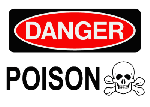 In our busy world, meditation is becoming more and more popular as dads search for ways to relax, de-stress and enhance their quality of life.
In our busy world, meditation is becoming more and more popular as dads search for ways to relax, de-stress and enhance their quality of life.
I found years ago that guided meditation had positive benefits , particularly when I was looking for ways to relax.
I remember when I first tried a CD, I had my earphones in and fell asleep before it got to the end of the session (worked well). I woke-up during the night forgetting that I had earphone’s in and felt the cord brush past my check and thought it was a spider and jumped to the ceiling scrambling to get it off me 🙂 it was hilarious!
You don’t have to do anything but sit or lay and listen!
Meditation is an incredibly enjoyable, healthy and inspiring way to achieve inner peace, and guided meditations are, quite simply, the easiest way to meditate.
Traditional unguided meditation techniques, while wonderful in their own way, do require some effort on your part. It’s your job to keep your mind focused and as clear as possible. But with guided meditation, you are guided into a state of meditation by spoken word guidance. Your guide will literally walk you through the process step by step.
Can you think of anything more effortless and relaxing than listening to tranquil music while you are guided into a state of deep meditation?
Guided meditation is not only easy, it is also a very powerful tool for personal development and a simple way for dads to relax.
Meditation plus visualization:
The awesome power behind guided meditations
Where guided meditations get really interesting is in the way that they utilize the power of your imagination and the power of visualization to effect positive personal changes. This is one of the main benefits of guided meditation, and in this regard, guided meditations are even more powerful than traditional, passive meditation.
Visualization, or creative visualization as it is sometimes referred to, is the use of mental imagery to effect positive changes in your life. Visualization techniques are now widely employed in many fields such as the arts, sports, business, alternative medicine, religious practices, psychotherapy and self-improvement.
As Denis Waitley, coach to both Olympic champions and Apollo astronauts once said:
“The mind cannot tell the difference between an actual,‘real-life’ event and a vividly imagined one.”
Guided meditations help you to vividly imagine positive experiences that represent, either directly or symbolically, whatever changes you wish to express in your life.
During a guided meditation you are in such a deep state of relaxation that the imagery you are guided to visualize becomes very vivid indeed. Immersing yourself in a guided meditation while listening to positive suggestions is a blissful experience that results in real and immediate benefits. You’ll feel better; physically, emotionally, mentally and spiritually.
Of course, different people have different goals and needs, and with that in mind, guided meditations can be tailored to achieve specific outcomes such as:
- Improving clarity in life
- Spiritual development
- Experiencing elation, freedom and expanded awareness
- Emotional and physical healing
- Enhancing creativity
- Profoundly deep relaxation
- Increasing confidence and personal empowerment
- Opening the heart and healing relationships
- Curing negativity or self defeating behaviors
- Improving performance in business or sports
- Resolving psychological difficulties
A well crafted guided meditation often includes positive suggestions and positive visualizations that cause you to have an inner experience of the changes you are seeking to realize in your outer life.
Why is this so important? Let’s allow The Buddha to answer that question for us:
“The mind is everything. What you think you become.”
Guided meditations help you to achieve a state of deep inner stillness, so that your mind can be cleared of clutter and unwanted thoughts, and then filled with vivid visualization experiences that effect positive personal changes.
Particularly well crafted guided meditations may also make use of symbolic imagery, so as to connect with the deeper, more abstract levels of your mind in an effort to encourage profound healing and personal development breakthroughs.
There so many different guided meditations downloads that you can easily obtain from online. You can download guided mediation on
- Relaxation
- Sleep
- Inner peace
- Self confidence
- Stop smoking
- Learning to trust
- Calmness
- Improved sense of positivity
- Elimination of anxiety
- And many more
Click here to listen to some demo’s and see what might work for you? There is some free guided meditation around you just need to Google it and apply some trial and error to find the type that works for you.

 Routines today play a huge part in our family, because our kids really don’t have any control over their day to day life, it can give them an opportunity to feel like they belong in the running of the household and provides a sense of order, control and predictability.
Routines today play a huge part in our family, because our kids really don’t have any control over their day to day life, it can give them an opportunity to feel like they belong in the running of the household and provides a sense of order, control and predictability. Father’s Day is fast approaching. Few more days to go and we will be celebrating this day with overwhelming gratitude for our dads.
Father’s Day is fast approaching. Few more days to go and we will be celebrating this day with overwhelming gratitude for our dads. To adults, childhood can seem like a carefree time. But kids still experience stress. Things like school and social life can sometimes create pressures that can feel overwhelming for kids. As a dad, you can’t protect your kids from stress — but you can help them develop healthy ways to cope with stress and solve everyday problems.
To adults, childhood can seem like a carefree time. But kids still experience stress. Things like school and social life can sometimes create pressures that can feel overwhelming for kids. As a dad, you can’t protect your kids from stress — but you can help them develop healthy ways to cope with stress and solve everyday problems.
 A smoothie that the kids will love, you can be creative by purchasing some decorative glasses and making it look like a smoothie you would get from a resort. Kids always appreciate the effort.
A smoothie that the kids will love, you can be creative by purchasing some decorative glasses and making it look like a smoothie you would get from a resort. Kids always appreciate the effort.
 At some point in time it is going to be necessary to understand what’s happening to your daughter as she moves from being a girl to becoming a teenager and woman. Knowledge on these changes will help you stay connected and understand what she is experiencing. You will also not be left out of the conversations.
At some point in time it is going to be necessary to understand what’s happening to your daughter as she moves from being a girl to becoming a teenager and woman. Knowledge on these changes will help you stay connected and understand what she is experiencing. You will also not be left out of the conversations.
 I always dreaded the thought of my GP performing a digital examination and it was the no.1 reason I never went. These days technology has saved the day with detection of many diseases through blood testing (thanks gawd) I can now say I go yearly. The Alfred Hospital has put out a
I always dreaded the thought of my GP performing a digital examination and it was the no.1 reason I never went. These days technology has saved the day with detection of many diseases through blood testing (thanks gawd) I can now say I go yearly. The Alfred Hospital has put out a  When boys are growing up and there bodies start to change, they will have questions about these changes. Below is a response to a commonly asked question that may help you.
When boys are growing up and there bodies start to change, they will have questions about these changes. Below is a response to a commonly asked question that may help you. Are you thinking about what to do with the kids this weekend or over school holidays? There are some great Brisbane suggestions below.
Are you thinking about what to do with the kids this weekend or over school holidays? There are some great Brisbane suggestions below. Are you thinking about what to do with the kids this weekend or over school holidays? There are some great Melbounre suggestions below.
Are you thinking about what to do with the kids this weekend or over school holidays? There are some great Melbounre suggestions below. There is no accident that I am using a “Danger sign with skull and cross bones” as it visualises exactly the harm of poisonous words.
There is no accident that I am using a “Danger sign with skull and cross bones” as it visualises exactly the harm of poisonous words.
















Recent comments